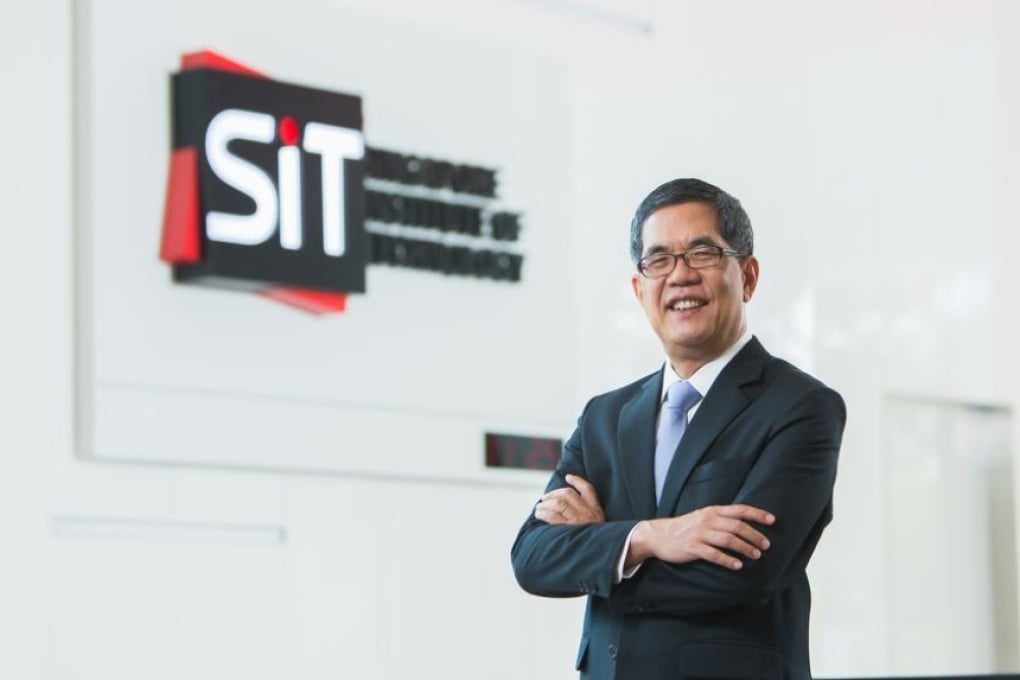SIT takes lead in educating workers of the future
Technology can sometimes be disruptive. Amazon.com's automated warehouse, Google's driverless car and dozens of other inventions are changing the skill sets workers need for the future. To meet this burgeoning demand, Singapore implemented the SkillsFuture programme, which gives Singaporeans of any working age easy access to education to develop the appropriate skills required by the modern city state moving forward. One of the programme anchors, Singapore Institute of Technology (SIT), is fast gaining a reputation locally and abroad for its innovative approach to applied learning that integrates learning with industry and the community.

Technology can sometimes be disruptive. Amazon.com's automated warehouse, Google's driverless car and dozens of other inventions are changing the skill sets workers need for the future. To meet this burgeoning demand, Singapore implemented the SkillsFuture programme, which gives Singaporeans of any working age easy access to education to develop the appropriate skills required by the modern city state moving forward. One of the programme anchors, Singapore Institute of Technology (SIT), is fast gaining a reputation locally and abroad for its innovative approach to applied learning that integrates learning with industry and the community.
"Singapore needs to put in place an ecosystem to ensure people will have the skills to manage the future," says Professor Tan Thiam Soon, president of SIT. "The experiences of the United States and Europe tell us that if you do not get all your people skilled correctly, there may be many jobs this economy will generate, but many of the people cannot do them because they are not properly trained or educated."
While the traditional approach prepares students for university education, SIT hones students to be work-ready as specialists in their chosen fields of interest. The university, in particular, is pioneering a new pathway in university education. Many of its degree programmes are not offered in any other Singaporean institute as SIT has specifically designed them to cater to Singapore's changing economic landscape.
"We work very closely with industry partners and leaders in developing our courses to make sure that we deliver what they want," Tan says. "As a result, our programmes tend to have sharper focus, serving industries in many specific areas."
To date, SIT offers nine degree programmes, two of which are joint degrees with its overseas university partners DigiPen Institute of Technology and Trinity College Dublin. SIT also offers degree programmes in accountancy and the hospitality business. This year, the school introduced software engineering and information security under its information and communications technology cluster. SIT also launched a degree in sustainable infrastructure engineering for the hi-tech preventive maintenance of establishments such as railway systems in 2014, the year it was gazetted as an autonomous university by the Singapore government. Next year, SIT will be offering programmes in allied health such as occupational therapy, physiotherapy and diagnostic radiography.
"We deliberately developed a more hands-on learning approach," Tan says. "We cater to people who prefer polytechnic education, believing they will learn and will do better working on real circumstances instead of reading and trying to pass exams under the traditional educational system."
Delivering on this practical approach, SIT requires students to spend from eight to 12 months in a work placement programme in their chosen industry as part of their education. After this integrated work-study programme, students have to bring back one innovative project based on their work with their assigned company.
SIT's model also includes overseas university partners, who deliver their programmes in Singapore together with faculty from SIT. These partnerships with Newcastle University, University of Glasgow, Technical University of Munich, the Glasgow School of Art, Trinity College Dublin, University of Liverpool, University of Manchester, Wheelock College, DigiPen Institute of Technology and The Culinary Institute of America have been important in SIT's evolution since its inception in 2009. By having faculty from these renowned universities come to Singapore to teach the degree programmes, SIT plans to significantly broaden its capabilities.
"We are beginning to lay the foundation for what is going to be needed in Asia, perhaps not immediately, but surely five to eight years from now," Tan says. "The region has to grow, and it will also be facing challenges similar to those in Singapore. We are fortunate that we have the opportunity to be the leader, to think a bit further and have the resources to come up with solutions."